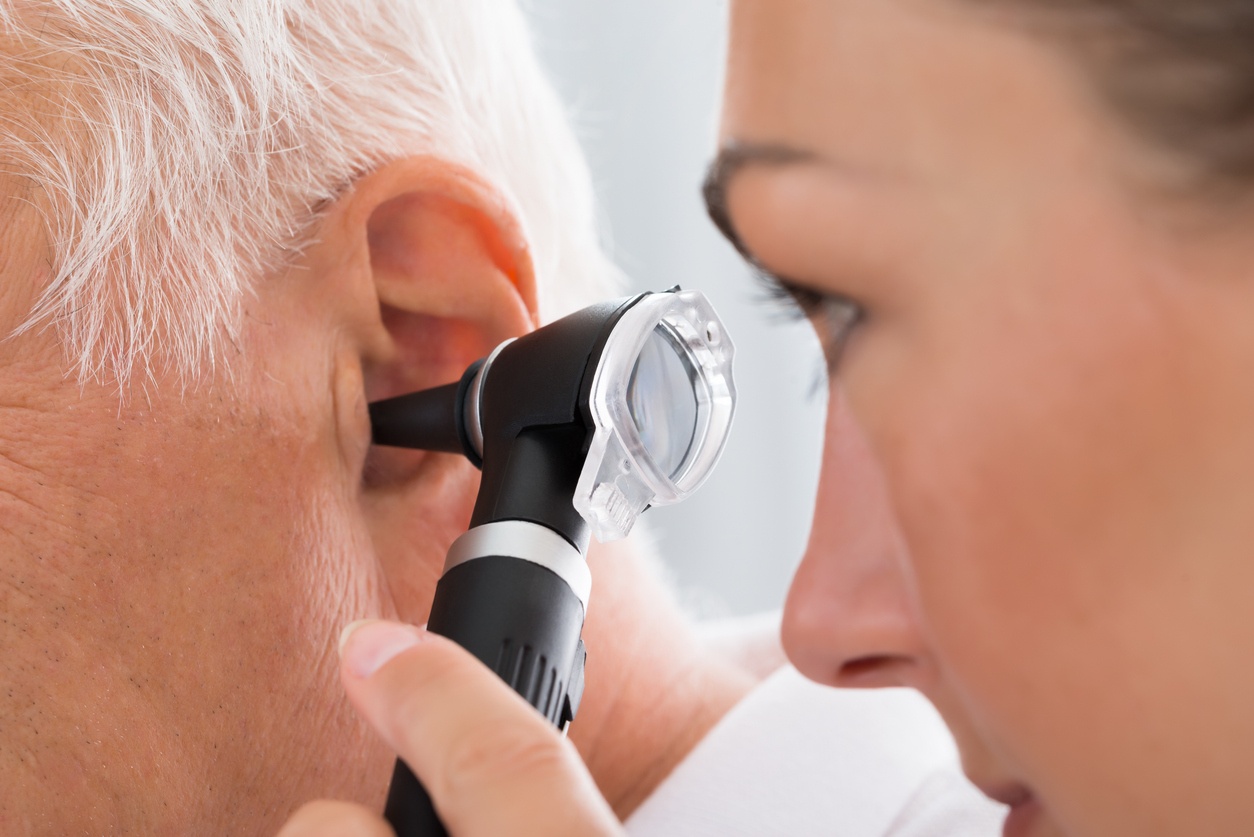The Latest Healthcare News
Check out our blog to learn more from our team about the latest medical advancements, health tips, and primary care news.

Bacteria, fungi, or viruses can cause an infection in the ear canal or the Eustachian tube that connects the ear to the throat. While children are more likely to experience ear infections, adults can suffer from them too. Our team of experienced medical professionals is dedicated to providing thorough assessments and personalized treatment plans to help relieve the pain and symptoms of ear infections, prioritizing your comfort and well-being at every step of the journey.
The ear is a complex organ made up of three parts: the outer ear (the visible portion and the canal to the eardrum), the middle ear (which contains tiny bones that amplify sound), and the inner ear (where sounds are converted into electrical impulses for the brain). Infections can affect any part, with middle ear infections (otitis media) being the most common in children; about four out of five will experience one. These infections often occur when fluid builds up behind the eardrum due to allergies, colds, or respiratory infections, and can lead to complications like hearing problems or a ruptured eardrum.
We offer a comprehensive approach to ear infections, offering various tests and treatments to help relieve the pain and resolve your symptoms. Whether you or your child is experiencing pain, a fever, swelling, discharge, or any other uncomfortable symptoms of an ear infection, AllCare is here to simplify your healthcare journey with primary care physician visits, walk-in clinics, or convenient telemedicine appointments, which can treat a wide range of non-life-threatening conditions.

Ear infections occur when bacteria, viruses, or fungi invade the ear, leading to inflammation and fluid buildup. The most common cause of ear infections, particularly in children, is a blockage in the Eustachian tubes, and factors that can contribute to this blockage include:

Your physician may help you manage antibiotics or antivirals, depending on whether your infection is viral or bacterial. Antihistamines for vertigo or dizziness and antiemetics for nausea and vomiting may also be recommended, along with over-the-counter (OTC) pain medications to help relieve symptoms.

If you have a fever or swollen lymph nodes, we may perform blood tests to rule out other serious conditions.

Using a lighted magnifying tool called an otoscope, our physicians will examine your ear to determine if there is a buildup of earwax and look for fluid behind the eardrum.

If earwax is causing your pain, we can perform a gentle cleaning of the ear canal.

This test can help uncover whether the source of your infection is bacterial, viral, or fungal in nature.

This test uses tones and sounds to determine if ear infections or earwax buildup could be the source of your hearing loss.

Sometimes, your child may need a procedure where tympanostomy tubes, also known as ear tubes, are inserted to allow air to flow freely in and out of the middle ear to prevent fluid buildup.
While most ear infections go away on their own, some may require medical attention. An ear infection may not be directly visible without medical equipment, but certain signs can indicate its presence, especially in the ear canal or eardrum. If you are experiencing any of the signs of an ear infection, visit AllCare for an accurate diagnosis. Here are some common visual and ear infection symptoms:
Be sure to consult your child’s pediatrician or your primary care physician if your child is experiencing:

Experience the convenience of telehealth appointments at AllCare. Our telemedicine services are designed to provide you with seamless access to healthcare without the need to leave your home. Whether you need an online doctor’s appointment for immediate or primary care, AllCare’s got you covered. With our online telehealth services currently available to individuals located in Virginia, Maryland, and Washington, D.C., you can connect with our experienced immediate and primary care physicians via secure video calls.
At AllCare, we are expanding our virtual healthcare access to all services previously offered in person. This includes:
AllCare can help you learn how to manage your symptoms. We also provide ongoing support to ensure your asthma treatments are working properly. Getting diagnosed and treated for asthma is as easy as scheduling an appointment at AllCare, but you can also see a doctor at our facilities on a walk-in visit if needed. Here are a few simple steps for getting treated for asthma:

No, ear infections themselves are not contagious. However, the viruses or bacteria that can lead to ear infections may be contagious. For instance, a cold or respiratory infection that causes nasal congestion can increase the risk of developing an ear infection, and those underlying infections can spread from person to person.
While you cannot catch an ear infection directly, taking precautions to avoid upper respiratory infections—such as practicing good hand hygiene, avoiding close contact with sick individuals, and staying up-to-date with vaccinations—can help reduce the risk of developing ear infections.
Getting diagnosed and treated for ear infections is as easy as scheduling an appointment at AllCare, but you can also see a primary care doctor at our facilities on a walk-in visit if needed. Here are a few simple steps for getting treated for ear infections:
The duration of an ear infection can vary depending on several factors, including the age of the child, the type of infection, and whether it’s viral or bacterial. Generally, acute ear infections (otitis media) typically last about 3 to 7 days with treatment. In some cases, symptoms may improve within a couple of days, but it’s essential to complete any medication to prevent complications.
If the ear infection is chronic, lasting more than three months or occurring frequently, it may require further evaluation and management by a healthcare provider. If your child’s symptoms persist or worsen after a few days, consult a pediatrician for guidance.
Much like the cold or the flu, an ear infection can’t be completely prevented. However, keeping up with vaccinations, practicing good hygiene, and managing seasonal allergies can help reduce the risk of respiratory infections that lead to ear infections. Avoiding secondhand smoke and breastfeeding exclusively for the first six months boosts a baby’s immune system. Additionally, proper ear care—such as not inserting objects into the ears and keeping them dry—along with positioning infants upright during bottle-feeding can further reduce the risk, especially in children who are more susceptible.
Most of the time, ear infections clear up on their own. As a first line of defense, you could try at-home remedies, including over-the-counter pain relievers, applying a warm compress to the affected ear, and taking an antihistamine to relieve your congestion. If your ear infection doesn’t get better within a few days, or if it’s causing a fever, you should schedule an appointment with a physician.
Yes, there are several different types of ear infections, depending on the location of the infection.
To determine if your baby has an ear infection, watch for several common signs and symptoms. Look for signs of ear pain, such as your baby frequently tugging at their ear or being unusually fussy. Irritability or increased crying, especially when lying down, can indicate discomfort. You may also notice a low-grade fever or that your baby is having difficulty sleeping. Additionally, if you see fluid or pus draining from the ear, it may signal an infection. If you observe any of these symptoms, it’s essential to consult your pediatrician. They can examine your baby’s ears using an otoscope to confirm if an infection is present and recommend appropriate treatment.
At AllCare, we’re proud to deliver exceptional primary and immediate care to residents across Virginia, Maryland, and Washington D.C. From bustling city centers to serene suburban neighborhoods, our clinics are strategically placed for your convenience and care. Experience top-tier ear infection treatment in your community with AllCare, where your health is our priority.
Check out our blog to learn more from our team about the latest medical advancements, health tips, and primary care news.
Seasonal Affective Disorder (SAD) represents a significant mental health concern affecting approximately 5% of adults in the United States. This […]
Read More >Mammograms save lives. Early detection of breast cancer through proper screening will give a patient a remarkable 99% five-year survival […]
Read More >Most people are aware that diet, exercise, and genetics affect cholesterol levels. But can stress raise your cholesterol? The answer […]
Read More >Our related healthcare services extend beyond immediate care to include preventive care such as routine physical exams, chronic disease management for conditions like diabetes, and specialty care referrals for more complex health issues.